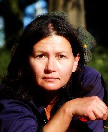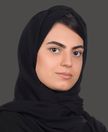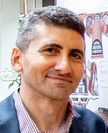WHO
The Robotic Building (RB) lab has been established 2014 at TU Delft and has been undertaking since then research in physically built robotic environments and robotically supported building processes. It has developed the Design-to-Robotic-Production-Assembly and -Operation (D2RPA&O) framework for which it has received national funding and support from academic and industrial partners and consists of architects, engineers, researchers, and programmers with expertise in parametric design, robotic production, assembly, and operation. Results of this research are regularly presented at international venues such as the TEDx at Delft Salon, Imprimer le Monde at Centre Pompidou, etc. and published in journals such as SPOOL and book series such as Adaptive Environments, etc. D2RPA&O research is coupled with education and has been offered 2017-19 at Dessau Institute of Architecture.
Henriette Bier is initiator and leader of the Robotic Building lab, associate professor at TUD, honorary associate professor at U Sydney and co-founding member of the TU Delft Robotics Institute and the international network Adaptive Environments. Results of her research have been published and presented in more than 200 journals, books, and exhibits.

Veronika Laszlo moved to the Netherlands in 1987 and studied software engineering and artificial intelligence. She was working on many ICT projects for various companies involving tele-communications, networking, databases and web solutions. She joined Hyperbody as a programmer in 2008 and works on protoSPACE projects. Since 2014 she works on Robotic Building projects and co-manages the Robotic Building lab.

Arwin Hidding is a designer and researcher. He has graduated Cum Laude from the TU Delft and his project was nominated for the Archiprix. Since his graduation he is involved in academic research and education in the Robotic Building lab at the TU Delft. The main topic of the research is creating 3d prints with programmable properties, by using different materials or geometries.

Fang-Che Cheng is a PhD cand. now in the Interactive Architecture Lab, NCKU, and a guest researcher at Robotic Building lab, TU Delft. He holds an M.Arch dual degree in Sustainable and Digital Innovation, from Tung Hai University, and Digital Fabrication, from CEU San Pablo University. Fang-Che is a researcher at FabLab Madrid and works as an educator and manager in Robot Aided Creation and Construction lab. His primary research interests involve Design Computation, Biomimicry, Architectural Automation, and Human-Robot Interaction.

Peng Lee is a PhD cand. working on AI-supported low CO2 circular design with the aim for reusing, recycling, and reprocessing materials. With her strong interest in material cultures, construction, vernacular architecture and typologies, she found it both challenging and intriguing to embrace AI with anthropological, architectural and traditional/innovative building knowledge.

Atousa Aslaminezhad is an architect, urban planner/ designer, and educator working on the threshold between architecture, society, and future technological possibilities. Atousa is an Assistant Professor of Architecture at the School of Energy, Geoscience, Infrastructure and Society at Heriot-Watt University Dubai. She is currently enrolled as a PhD candidate at the University of Antwerp with research affiliation at the Robotic Building Lab at Delft University of Technology. Her expertise in computational design and digital fabrication is the focus of her PhD research. Her research interest lies in computational design and robotic production in architecture, pop-up habitats, post-disaster and emergency architecture, lunar and Martian (Off-Earth) habitations, architecture for extreme environments, and digital fabrication: In-Situ 3D printing and material science intertwined with structural design and performance.

Giuseppe Calabrese is a PhD cand. in Earth & Planetary Sciences for Moon and Mars Habitats at the University D’Annunzio Pescara-Italy under the IRSPS International Research School of Planetary Sciences, and affiliated researcher at Robotic Building lab, TU Delft. He has recently completed ISU SHSSP22 sponsored by ASI Agenzia Spaziale Italiana and is a winner with his design SPROUT of the International Architectural Design Competition Mars City Design 2020 - Urban Farming Challenge for Extreme Environments sponsored by NASA, ESA, National Geographic. He is passionate about architecture in extreme environments.

Ningzhu Wang is an architect and a PhD candidate. He is an Architect/Associate at UNStudio in Amsterdam and is a chartered member of the RIBA in the UK. He has extensive experience in architectural design and research projects in Europe and Asia. Over the past 12 years of practice in the industry, his design works have been exhibited and published in various media. He is currently enrolled as a PhD student in PRS Europe at RMIT University in collaboration with the Robotic Building Lab at TU Delft. His research interests lie in computational design and innovative architectural construction solutions. Currently, he is focused on his PhD research, exploring AI integration and data synthesis in architectural design with prefabricated timber systems.

Tracey Woods has worked across multiple universities and industry within the fields of architecture, design and cross-disciplinary research. She has also maintained a presence in the commercial world as partner and creative director of art, culture and design magazines based in Sydney and London, alongside staging the design and curation of architecturally and art associated events and exhibitions. Academically and professionally, Tracey has worked with universities, artists and galleries both nationally and internationally giving her strong experience in collaborating with project partners and associated key stakeholders. She is continuing this cross and inter disciplinary theme undertaking a PhD that is positioned across architecture, design, robotics and environmental science.

Tinghao Feng is an MSc. Student in Architecture at KTH, Sweden and doing his exchange study in TU Delft. He received her undergraduate degree in architecture from Liverpool university. He started to gain strong interest in circular and AI directed construction, which aims to reduce the construction carbon footprint through dismantling and upcycling the building components.

Ece Sel is an MSc. student in Building Technology at TU Delft and received her undergraduate degree in architecture with high honors from Bilkent University. Her area of focus centers around designing for extreme environments, particularly Mars and Moon, autonomous construction, digital fabrication, and researching innovative materials. Previously, she has co-led interdisciplinary research projects, resulting in a patent for a radiation shielding building layer for Mars and a conference paper on circular materials for acoustic panels. Additionally, she is the chairperson of the BouT Building Technology study association.

Alicja Rudnicka MSc2 Architecture student at TU Delft passionate about the implementation of parametric design in the multi-sensory architecture and fashion industry. Her interests are centered around the future of synesthetic design complemented by the new technology, interactive installations that blur the boundaries between the notion of space and architecture and artificial intelligence. Previously, she studied at TU Warsaw in Poland where she graduated with a Diploma Cum Laude in Architecture. Besides work, she is also leading the association team „o Architekturze” where she is responsible for organizing pro bono lectures about architecture design theory.

Marta Zapaśnik MSc2 Architecture student at TU Delft interested in the algorithmic design to achieve further goals such as social, economic or ecologic sustainability in architecture. Previously, she studied at TU Warsaw in Poland and OTH Regensburg in Germany finishing with a BSc in Architecture. Marta took part in several extracurricular workshops and competitions (Architektour 2017, What about Praga? 2019, Berlin-Warsaw 2019) or international exchanges (IAESTE 2018 - Romania, ATHENS 2019 - Italy, ERASMUS 2020/21 - Germany) designing sustainable architecture in different contexts.

Max Latour is researcher and tutor at the Robotic Building lab. After studying at Eindhoven University of Technology and Tsinghua University he graduated at Delft University of Technology with a project that was nominated for Archiprix. His current research focuses mainly on 3D Wire Arc Additive Manufacturing and robotic milling.

Jelle Feringa is writing a PhD thesis, exploring the potential of simulation and robotic fabrication for architectural conception, at TU Delft. Jelle has taught and lectured at the ESA, Paris-Malaquias, ETH, and TU Delft. He is a founding partner in EZCT Architecture & Design Research. Projects have been exhibited at the Mori Art Museum (Tokyo, 2004), Archilab (Orleans, 2004), Barbican Gallery (London, 2006), Design Miami/Basel (Miami, 2007), Pompidou Center (Paris, 2007), Maison Rouge (Paris, 2007), Architectural Association (London, 2007), ScriptedByPurpose (Philadelphia, 2007), International Biennial of Sevilla (Sevilla, 2008), Vivid design gallery (Rotterdam, 2009). Early research results have recently been exhibited at the transNatural (Amsterdam, 2010) exposition. The work of EZCT is part of the permanent collection of the Pompidou Center and the FRAC Orleans collection. In 2007 the office won the Seroussi Pavilion. Jelle's work is focused on the close coupling of advanced simulation methods with evolutionary computing methods and robotic fabrication. For his research work, Jelle relies on Open Source software. Working together with Thomas Paviot, Jelle has been driving the development of an open source CAD framework, PythonOCC a CAD/CAE/PLM development framework for the python programming language.

Christian Friedrich was born in Germany. After studying Physics and Philosophy in Berlin and completing an architectural engineering degree at Hanzehogeschool Groningen, he finished his graduate education (MSc) in architecture at Delft University of Technology, Netherlands. He is the co-founder of the media artist collective Ezthetics. He is currently developing his PhD research project in which he intends to describe and actualize the architectural singularity: a point at which the architectural process loop is executed in real-time and shifts from a phased process into a behavioral network, in effect reshaping architectural praxis.

Sina Mostafavi is a practicing architect, researcher, and educator with expertise in design computation and architectural robotics. Has practiced since 2007, he is the founder of studio SETUParchitecture. Since 2011 he is a PhD researcher at TU Delft and in 2014 he co-initiated Robotic Building lab, where he is currently a senior researcher and lab manager. He is teaching design studios at Delft and Dessau Institute of Architecture. He has published and presented internationally such as in eCAADe, AA-London, ACADIA, Rob|Arch, Paris-Malaquais, and work by him are exhibited in multiple galleries such as V2 Rotterdam and Centre Pompidou.

Arise Wan is an architect based in Germany and a guest researcher at Robotic Building, TU Delft, Netherlands. She has an early artistic background in Manga Arts illustration. She finished her graduate education (MA) in architecture at Dessau International Architecture, Germany. She is also a member of D-START and SEAD network, designing future concepts for an Evolving Asteroid Starship incorporating studies of ESA’s Melissa system. Arise’s works earned several international recognitions and is featured around South East Asia and Europe. Currently, her research is focussed on building on Mars with TU Delft’s Robotic Building Team.

Siddharth Jain is an MSc Candidate at TU Delft. Since B.Arch's graduation, his main field of research has been digital architecture. His final year bachelor's project has won the second runner up award in Design Whack competition for Star Student Awards 2019; Category- Parametric & BIM Projects.
The work of his influencers lies in two major fields- digital and ecological architecture, each of which is vast and intriguing. His constant effort is to thrive for more knowledge in exploring the symbiotic relationship between these fields.

Amir Mahdi Amani is a developer and senior undergraduate student from Iran. He is studying Computer Engineering now, and has skills in programming languages, such as Python, C++, Matlab, Swift 4 and Š. He is very eager to works on the following topics both on academic and industrial area: Robotics, AI, Computer Vision, Image Processing, and mobile applications software. For more detail information, please refer to his LinkedIn.

Yu-Chou Chiang is a PhD cand. at TU Delft developing strategies for Design-to-Robotic-Production (D2RP). He has an engineering background and worked as educator and researcher in the Department of Civil Engineering, National Taiwan University. Since 2017, he works on a PhD with focus on mobile build-on-demand D2RP and assembly involving human-robot collaboration

Alexander Liu Cheng is a PhD cand. at TU Delft. His work on intelligent built-environments situates Cyber-Physical Systems within the Adaptive Architecture discourse. Alex obtained a B.Sc. in Computer Science from the New York Institute of Technology; a professional M.Arch. from The University of British Columbia; and a post-professional M.Sc. in Advanced Construction and Building Technology—Automation, Robotics, Services from Technische Universität München. In addition to his academic pursuits, Alex previously worked as Architectural Designer at GRAFT Architects.

Milica Pavlović is a PhD cand. at the Interaction and Experience Design Research Lab, Design Department of Polytechnic University of Milan. She holds a MSc double-degree in Interior Design, from Polytechnic University of Milan, and Systemic Design, from Polytechnic University of Turin. During her Master studies, she took part in the Alta Scuola Politecnica program for exceptional technology talents that stimulate innovation through multidisciplinary team projects. Furthermore, Milica obtained working experiences in product and architecture design studios, such as Artemide S.p.A. and Andrea Branzi, as well as the bio-tech field with ValueBiotech S.R.L.

Ana Anton is a designer involved in academic research and education implemented at Robotic Building, TU Delft. She graduated in 2014 with distinction (Cum Laude) and Archiprix nomination for her project. Ana’s work enjoys international recognition and is featured in Asia, Middle East and Europe. She is an expert in computation-driven design, she explores complexity and emergence using intense computation, artificial intelligence and robotic fabrication with the aim to enhance spatial experiences.

Serban Bodea is an architect involved in academic education and research at Robotic Building, TU Delft. He graduated Cum Laude in 2014 and pursues research in Discrete Automation for robotic fabrication in architecture. He is motion designer for several robotic fabrication projects featured in China, United Arab Emirates, and across Europe.

